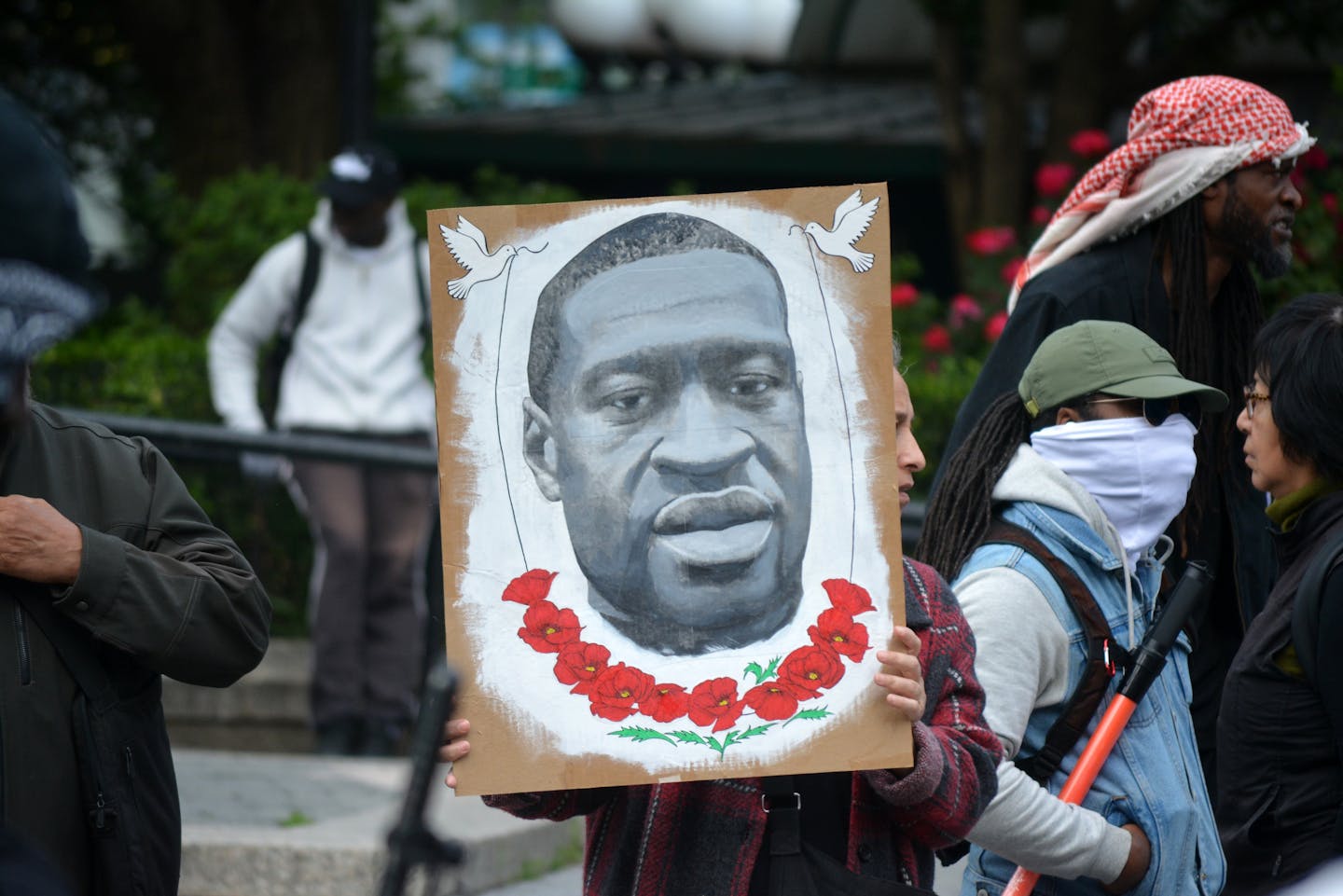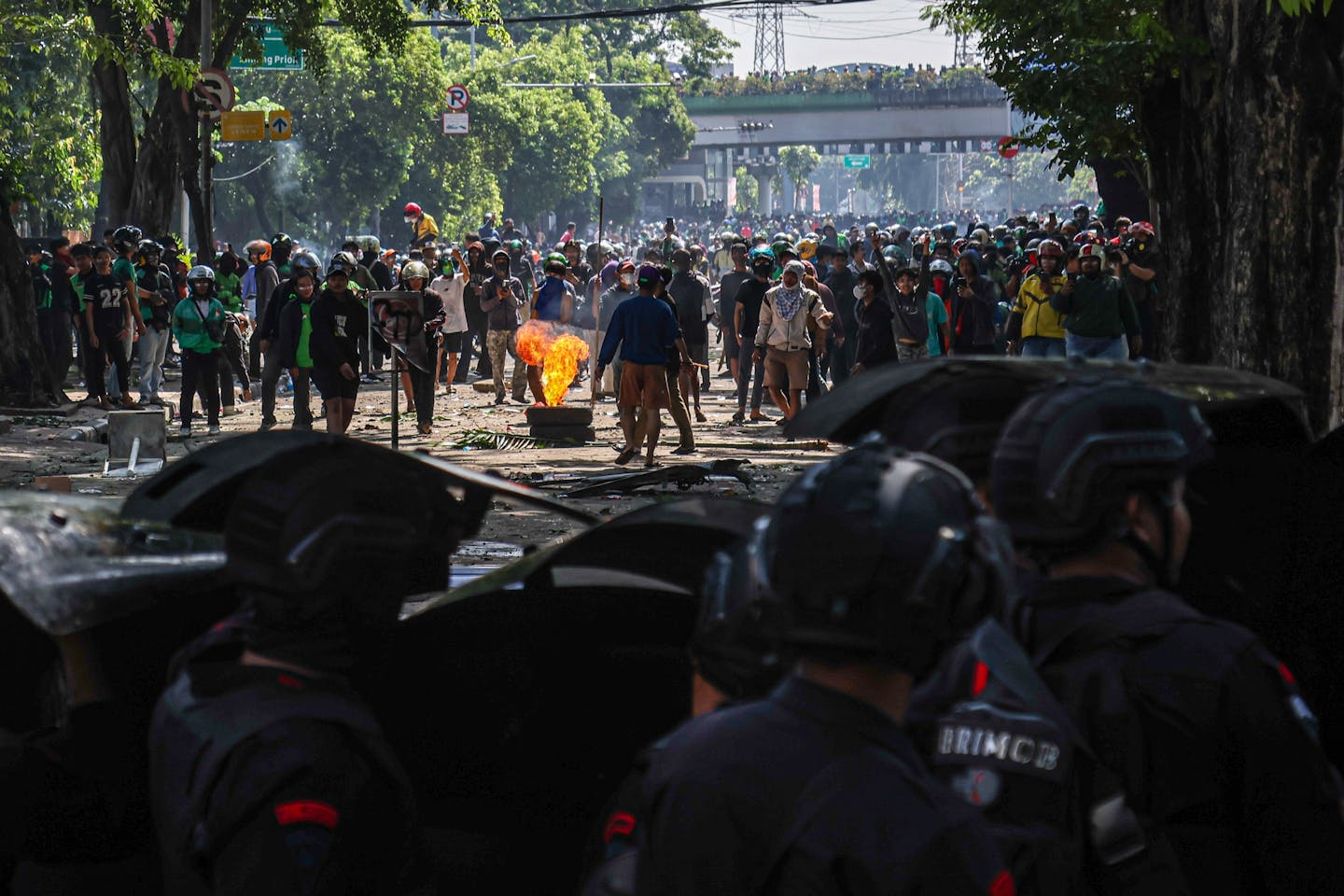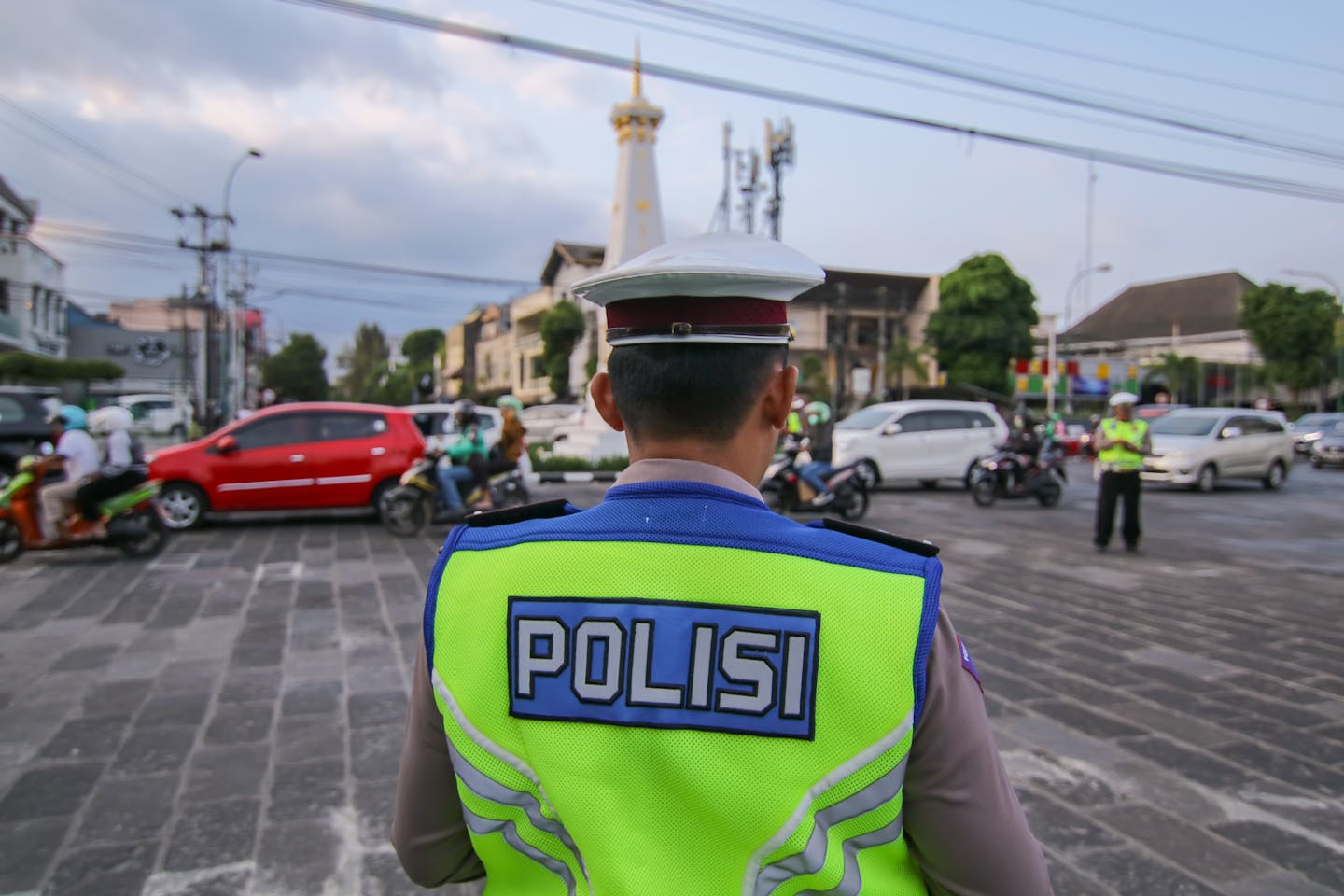The death of 21-year-old Indonesian online delivery driver Affan Kurniawan, who was crushed by a Barracuda police vehicle during a protest, invites comparisons to George Floyd. The African American was killed by a police officer in Minneapolis in 2020, sparking global Black Lives Matter protests.
One thing unites both cases: they reflect arbitrary violence by those sworn to protect the people.
Policing in the two countries differs greatly in its context: while police in the US are deeply tied to political elites and economic power, the Indonesian police were, in principle, established to serve the people.
Yet this shared pattern of civilian killings raises a pressing question: who are the Indonesian police really protecting?
American police: Guardians of the elites
Alex Vitale, a leading scholar on American policing, argues in his influential book The End of Policing that the roots of American policing are inseparable from three foundational systems of inequality in the 18th century: slavery, colonialism, and the control over the emerging industrial working class.

In other words, the American police were not originally created to reduce or prevent crime. Rather, as in many Western nations, they emerged to protect elite interests and maintain control over the working class.
The police thus functioned less as protectors of the public and more as instruments of social control. In essence, they served political elites and economic powers in defending a status quo that favoured them — a legacy that continues to shape the U.S. legal and security system today.
According to Vitale, in such a society, equality existed only among the elites, while the broader nation became a policed society. In this context, crime was defined less by moral conduct than by a person’s socio-economic standing.
For the enslaved and the poor, political rights were nonexistent, and even free expression was unimaginable. Any protest against this imposed order was swiftly branded a crime and harshly punished.
Vitale argues that law enforcement is increasingly armed not only to control the public and instil fear, but also to shield themselves from their own fear of being attacked by the very people they are meant to protect.
This cycle of reciprocal fear persists because the police are never truly connected to, nor in solidarity with, the communities they police.
In such a system, fear governs daily life. It does not flow in just one direction but operates reciprocally — something clearly reflected in the very equipment the police carry.
Indonesian police: Once protectors of the people
I once asked my professor why police officers in the United States always carry guns, even in sacred spaces like churches.
I explained that in Indonesia, the mere presence of guns — regardless of who carries them — instils fear

He replied that police carry guns as a precaution, driven by fear of being attacked.
I then showed him photos of Indonesian police mingling freely with civilians, unarmed and unafraid. Intrigued, he asked how this was possible.
I explained that while Indonesian policing partly inherited its structure from the Dutch colonial apparatus, but it earned legitimacy during the nationalist struggle for independence.
In that struggle, the early police were closely tied to ordinary people, giving them a sense of belonging to the society they served.
This rootedness set them apart from the militarised culture of Western policing, where trust is absent. In Indonesia, the police and the people are inseparable — essentially one.
The social media post comparing Affan’s death to that of George Floyd raises a deeper question: whom do the Indonesian police truly serve today?
Once seen as protectors of the people, the police now increasingly appear aligned with elite interests. Public dissatisfaction is growing, fueled by recurring patterns of violence used to silence dissent, facilitate land dispossession, and suppress indigenous communities.
This perception is further reinforced by the conspicuous wealth displayed by some officers and their families, raising serious questions about integrity and accountability.
These realities deepen a crisis of trust, eroding the very foundations of police legitimacy in a democratic society.
A tool of repression
Affan’s death starkly symbolizes the police’s shift from protecting the people to serving elite interests — a perception reinforced when President Prabowo Subianto, instead of apologising or holding the institution accountable, chose to promote the officers who oversaw the protest.

Such actions deepen public wounds and confirm suspicions that the police now serve rulers rather than citizens. If this course continues, they will stray even further from their democratic mandate and erode the very trust on which their legitimacy rests.
The Indonesian police must reflect on their roots in the people and heed Vitale’s reminder: policing should not merely serve as a tool of elite power and crime control, but as a force rooted in morality and ethical authority.
If the police forget their roots among the people, they risk ceasing to be guardians of justice and becoming nothing more than guardians of power.
At that point, public trust will collapse. The democratic mandate that once gave birth to the police will be hollowed out, and the institution will no longer be seen as a friend of the people, but as an instrument of repression.
If Indonesia’s police do not have the courage to return to their true calling, the gulf between them and the people will only deepen, leaving behind an institution stripped of legitimacy.
This article is republished from The Conversation, a nonprofit, independent news organization bringing you facts and trustworthy analysis to help you make sense of our complex world. It was written by: Perdian Tumanan, Villanova School of Law
Read more:
- The banality of state violence: Why the Indonesian police have become a public enemy
- Indonesia’s new criminal code isn’t just about sex outside marriage. It endangers press and religious freedom
- To promote gender equality and better protect women, Indonesia needs more female police officers
Perdian Tumanan tidak bekerja, menjadi konsultan, memiliki saham, atau menerima dana dari perusahaan atau organisasi mana pun yang akan mengambil untung dari artikel ini, dan telah mengungkapkan bahwa ia tidak memiliki afiliasi selain yang telah disebut di atas.


 The Conversation
The Conversation
 Associated Press US News
Associated Press US News Local News in Texas
Local News in Texas The Daily Beast
The Daily Beast ABC News
ABC News Law & Crime
Law & Crime The Christian Post
The Christian Post People Crime
People Crime RadarOnline
RadarOnline